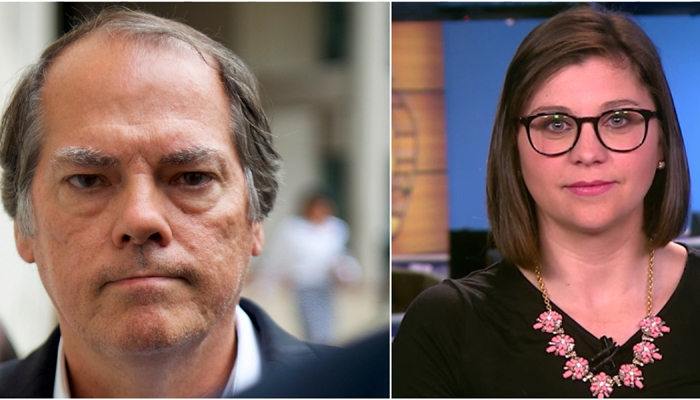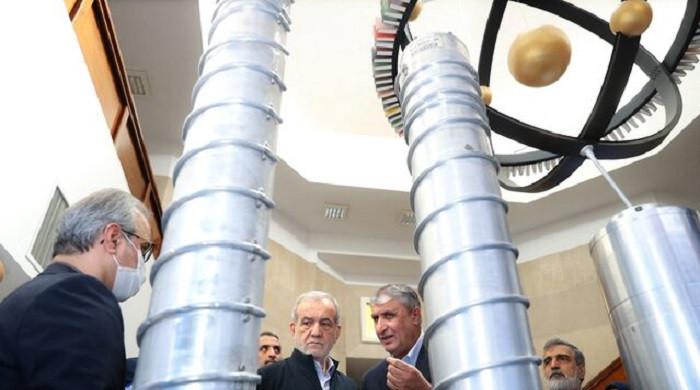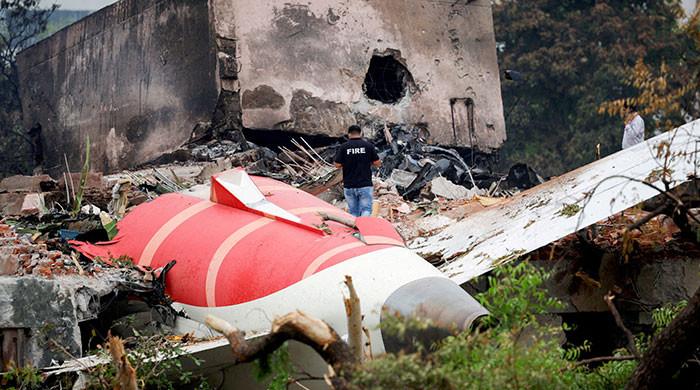How a NYT reporter's affair with top US Senate staffer has shaken US media
Following the public revelation earlier this month, activists have records raises constitutional concerns about press freedom
June 26, 2018

The affair of a young national security reporter at The New York Times with a congressional staffer has become the center of a classified leak investigation and shaken US media.
On June 8, media watchdog groups expressed alarm over the seizing of Ali Watkins’ records as part of a probe into intelligence leaks resulting in the indictment of James Wolfe — longtime head of security at the Senate Intelligence Committee.
The Justice Department on June 7 announced the indictment of Wolfe, 57, on three counts of making false statements about his contacts with three reporters.
As part of the probe, the Justice Department seized years of records related to two email accounts and a phone number belonging to the New York Times reporter, the newspaper reported on Sunday.
How Watkins and Wolfe met
According to The Times, Watkins moved to Washington in the summer of 2013 for an internship at McClatchy and met Wolfe while covering national security issues on Capitol Hill.
The head of security at the Senate Intelligence Committee started wooing her soon after and gave her a Valentine's Day card and sent her a pearl bracelet as a graduation gift.
Watkins told friends, who spoke with the The Times, that she began dating Wolfe, who is married, in the fall of 2014, several months after she graduated from Temple University and when she was working at Huffington Post.
Watkins' relationship with Wolfe lasted about three years until August 2017, according to her friends.
She then briefly dated another intelligence committee staffer last fall while she was reporting on the committee for Politico, The Times reported.
Seizure of records
In June 2017, Watkins was contacted by a man who claimed to work for the government and asked for a meeting with her.
During a discussion at a Washington restaurant, Jeffrey Rambo, who as per records was employed by Customs and Border Protection in California, questioned Watkins on her reporting on Russian espionage and revealed that he was aware of her personal relationship with Wolfe -- with whom she had recently vacationed in Spain.
Immediately after the meeting, Watkins informed her editors and said she believed Rambo was threatening to expose her relationship with Wolfe if she did not help identify government leakers.
However, according to a law enforcement official who spoke with The Washington Post, Rambo was not involved in the FBI's investigation of Wolfe.
But on December 14, just a few days before she began working at The Times, Watkins was approached by two FBI agents who asked her a series of questions about Wolfe.
Watkins immediately informed her editors at The Times.
In February, Watkins received a Justice Department notice informing her that some of her phone and email records, dating back to when she was a college student, had been seized by the government.
However, Watkins did not inform her supervisors at The Times about the development on the advice of her lawyer.
On June 7, Wolfe was arrested and charged with lying to federal investigators about his communications with four reporters, including Watkins.
Activists raise concern
Following the public revelation earlier this month, activists have records raises constitutional concerns about press freedom. At the same time, the admission of a personal relationship between the reporter and the source has raised questions about journalistic ethics.
Committee to Protect Journalists program director Alexandra Ellerbeck called the government's action a "dangerous precedent," arguing that journalists must be able to protect the confidentiality of their sources.
"We fear (this action) could be an opening salvo in an ongoing battle over reporters' ability to protect their sources," Ellerbeck said in a statement.
The Freedom Forum Institute, a media rights organisation, said the case is the first in the Trump administration in which a reporter's records have been seized.
"#PressFreedom advocates consider seizing journalists' records to be an intrusion on First Amendment freedoms," the group said in a tweet.
Politico's media writer Michael Calderone described the seizure as "an alarming threat to press freedom."
The case raised new concerns about whether journalists would be targeted as part of national security investigations, despite the constitutional protection of the media under the First Amendment of the US Constitution.
In a previous case under the Obama administration, a New York Times reporter faced criminal charges over a news source, but the case was later dropped.
New York Times spokeswoman Eileen Murphy said in a statement, "Freedom of the press is a cornerstone of democracy and we believe that communications between journalists and their sources demand protection."
She added that the Justice Department's actions "will endanger reporters' ability to promise confidentiality to their sources and, ultimately, undermine the ability of a free press to shine a much needed light on government actions."
The Times noted, meanwhile, that Watkins had been in a three-year romantic relationship with Wolfe, and that the indictment is based on false statements about the relationship.
This raises ethical questions along with the questions of constitutional protection, said Stephen Ward, a founder of the University of Wisconsin Center for Journalism Ethics who now writes the blog Media Morals.
"Most people say this kind of relationship creates a conflict of interest, and it creates all sorts of problems when this becomes public," Ward told AFP.
"The journalist's integrity becomes damaged, and if they do have a story to tell people will question whether it's based on personal interests."
Nonetheless, Ward said it is "very serious to seize journalist's papers, it certainly is a First Amendment issue."
- With additional reporting from AFP











